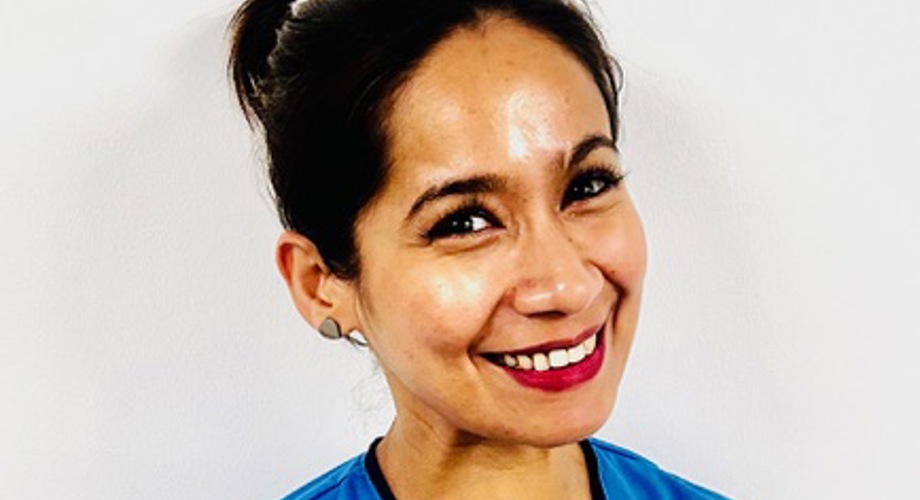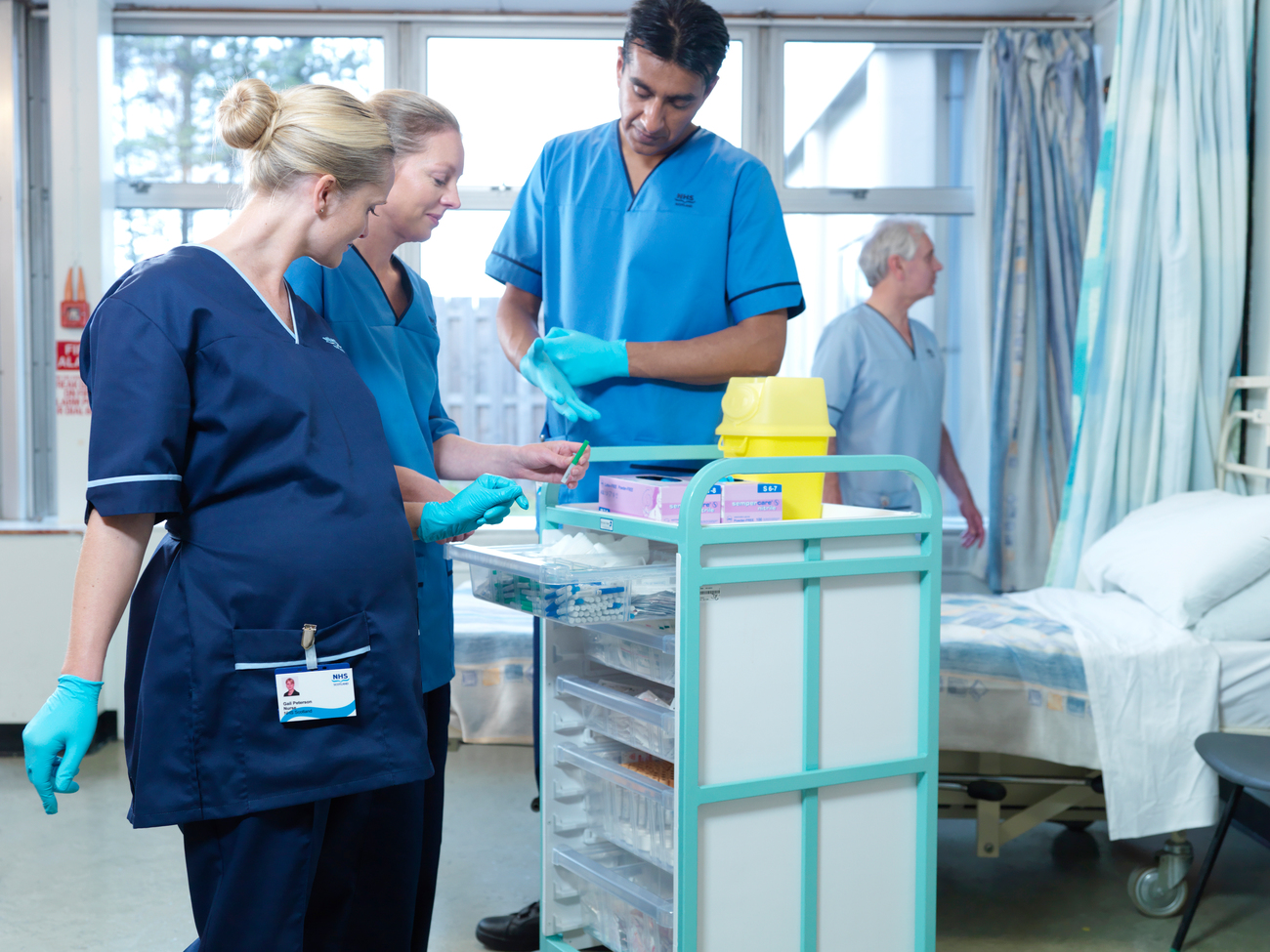
NHSScotland Careers
12 December 2023
•4 min read

Kathrina’s story
Hi, my name is Kathrina, and I work as a staff nurse in a neurology ward. I joined the NHS in December 2019. I moved to Scotland to further my education and be closer to Edinburgh University, where I'm pursuing a master’s degree in clinical education.
What inspired me to choose Scotland?
As a nursing student in the Philippines, a book helped me understand specific nursing care plans. It was easy to understand and helped me to get through some of my most difficult assessments. I was curious about who wrote the book and how it was produced.
After checking the bibliography and index, I noticed that many contributors had the University of Edinburgh listed alongside their titles. Similarly, much of the cited literature had been written in Edinburgh.
This inspired me to travel over 10,000 kilometres to relocate to Edinburgh and pursue my education, training, and nursing practice. I aim to become a nurse educator at the university and turn my career aspirations into reality.
Moving to Scotland
Before I moved to Scotland, I did lots of online research. Firstly, I used the resources available to better understand my role and responsibilities as a nurse. I researched health and social care distribution to learn how it impacts patients and the public.
I also studied the geography of Scotland and learned about the cost of living, availability of resources, ease of access, safety, community diversity, and cultural acceptance.
What surprised me most about moving to Scotland was the weather. People told me it changes every minute, and it really does. Being prepared is vital. Carry an umbrella or jacket and wear waterproof footwear. I had to learn this the hard way!
Something I have learnt about myself since moving to Scotland is that I have a good grasp of accents. This may come off as very basic to some, but I struggled with it at first. There were moments when I felt alone and misunderstood because of communication difficulties.
I’ve learned to have patience, to speak up, and not to be embarrassed when it comes to communication. This is vital when it comes to critical details regarding patient care. Now, I can even guess where people are from, just from hearing them speak! I’ve become quite the expert, though I still struggle at times.
Working during the pandemic has also made me value health services. I realised how fortunate we are in Scotland, as healthcare is available to everyone. In the Philippines, basic healthcare is free but very limited. The rest is private.
My experience of the international recruitment process
The recruitment process was smooth, and the required documentation instructions were clear. However, it took some time to process and get everything together.
Although some may find it frightening at first due to the number of exams and paperwork that must be completed, it’s doable. Many resources are available online, including those on the Nursing and Midwifery Council website. I always believe that if one person can do it, anyone can. It’s just a matter of time, effort, consistency, and a positive mindset.
Working for NHSScotland
Most of my healthcare background is in private health. The urge to find an environment where no distinction transpires became stronger. Finding the NHS led me to recognise that healthcare is for all.
The core principle of care and compassion is basic to nursing. However, it must never be limited to a patient's circumstances. The NHS provides a space where a person’s basic right to care is given. It’s truly for everyone.
While working in the private sector, I took the time to do a lot of reflection. I wanted to find my inner voice that dictates my practice according to my principles as a human being. Seeing and understanding how NHSScotland operates allows me to deliver holistic, fair, inclusive, and person-centred care.
I’ve always seen life from a broader perspective. It led to me leaving my home country in 2008 to find experiences that enhanced my understanding of the world and nursing. The diversity that comes with differences, language barriers, and cultural divergence catalysed my work to be open, honest, flexible, and adaptable.
Moreover, diversity in NHSScotland encourages cooperation and teamwork to bridge the gap between these differences. I always feel valued, effective, and equipped when discussing patient care with a multidisciplinary team of expert healthcare professionals.
There are a lot of opportunities available within the NHSScotland for career development. Knowing what you want, speaking up for it, and being consistent will help you to make the most out of what’s on offer.
Making a difference
During the first wave of the pandemic, I mentored a group of graduating nursing students. This was a challenging time. As a staff nurse and one of the team's more experienced members, I had to step up to fulfil my clinical role. This included caring for acutely ill patients, supporting families and motivating my struggling team. I had to make sure that while I was making clinical decisions related to patient care, the students were also learning.
As hard as it was, it became my mission for the students to learn clinical skills and see the importance of values, including compassion, trustworthiness, resilience, and courage.
At the end of the students’ placements, they all graduated. Some even became my colleagues. I have witnessed the newly qualified nurses put into practice the skills they learned while I mentored them.
My nursing career development
Apart from improving my clinical skills, I’ve also invested a lot of time in finishing my postgraduate certificate and diploma in clinical education. I’m also hoping to continue and complete a full master’s and a PhD.
Time management and prioritisation are the most important lessons that I’ve learnt. I can now balance my time between tackling patient care activities in my clinical role and studying.
I can also say that working throughout the pandemic has given me more appreciation for my profession and the person that I am.
My typical shift as a staff nurse
Mornings on the neurology ward
I work 12-hour shifts, which start with a handover at 7:30 am.
Mornings are usually the busiest. We do the first medication rounds at 8:00 am, then help with breakfasts, personal care, and carry out observations. At around 9:00 am, the multidisciplinary meeting takes place. It’s led by the nurse in charge and attended by the ward doctors, physiotherapists, occupational therapists, and often the bed managers.
I sometimes oversee the ward in my current job, and I enjoy it. It smoothens the day and allows the nurses to set goals or plan necessary tasks for patients. After all, we’re the ones spending the most time with them.
We regroup around 10:00 am for an update on the outcome of the multidisciplinary meeting, making sure everyone knows what is expected of the day. Doctors' rounds, consultations, and significant procedures usually occur in the morning.
To me, our nurses must be mindful of who gets to see the patient so we don’t miss any updates. We work as a team and make sure that we update each other on patient activities.
Afternoons on the neurology ward
The lunchtime medication rounds start at noon. After lunch, visitors usually come to see patients, so that it can get quite busy.
Nurses in my ward try their best to spend time with the patients and their relatives. In my experience, this helps promote person-centred care, which we aim to achieve in NHSScotland. We want to support what matters to all our patients.
I write notes, pick up orders, or read patient updates in the afternoon. Time always disappears quickly! Before I know it it’s 5 pm and time for the teatime medication round and dinner. As 8:00 pm approaches, we work together to wrap up the day and prepare the ward for the night shift.

Continue your nursing career journey in Scotland
We want to hear from you if you’re a qualified nurse and eligible to work in Scotland. Like Kathrina, you can support others and develop your career with an enriching role in the NHS. Learn more about the international recruitment route for nurses.